Make Pup’s First Hunt a Positive One

Kyle Wintersteen, Managing Editor
You’ve watched your black Lab blossom from an 8-week old puppy into a leggy youngster. He’s retrieving to hand, he’s steady — most of the time — and you’ve deemed him ready for the biggest event of puppyhood: the first hunt.
It’s an exciting time, but don’t let your eagerness to see him succeed cloud your judgment. The dog’s first hunt is not about you and certainly not about shooting ducks — it’s about ensuring your dog has a positive, controlled, confidence-building experience. At the hunt’s conclusion, he should be bright-eyed and raring to go again, not confused or suffering a bruised ego. Here are some key considerations.
Limit Hunt Participants
Resist the temptation to invite a crowd to your dog’s big debut. Your goal is to limit distractions and keep the dog on task, not to start him off with a flurry of gun blasts and dropping ducks. Instead hunt alone, or better yet, ask your most dependable hunting buddy to tag along. He can call and shoot while you focus on dog handling.
Take Singles
The more complicated you make the dog’s first retrieves, the more likely he is to fail one. Avoid this setback by shooting single ducks, ideally dropping them stone dead at modest distances. As the dog’s confidence and understanding of what’s taking place soars, you can move on to multiple birds. Often, a dog that keeps a skyward vigil and locks onto approaching birds is ready to mark an additional fall or two.
Avoid Geese
Geese are a risky introduction to life as a duck dog. They’re heavy and challenging to grasp, and an unsuspecting pup should never be allowed to trot up to an angry, winged honker. However, with the advent of early goose seasons in the United States, many dogs’ first retrieves are indeed Canada geese. If you simply can’t wait until duck season, the best advice is to pick out a single goose and ensure it’s dead before sending the dog.
Ensure Success
Despite your efforts, the pup might struggle on a retrieve. Don’t panic. Just walk toward the fall until the dog courses the area and finds it. If possible, avoid complicating matters with excessive handling. Should a bird buried in the brush prove especially difficult to locate, slip in a previously shot bird behind the dog. When he finds it, he’ll believe he’s completed the retrieve. The key is ensuring the dog is victorious, as dogs that haven’t tasted defeat refuse to give up on challenging retrieves.
Use a Leash
There’s no shame in using a leash to reinforce blind manners and steadiness. Your pup is experiencing something new and exciting — who could blame him for forgetting his schooling? The leash adds a layer of control, might help calm the dog, and most importantly, removes opportunities to act badly.

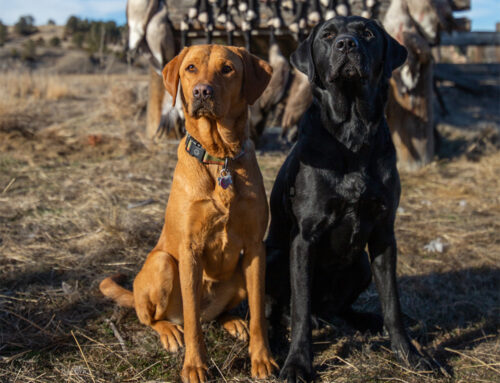
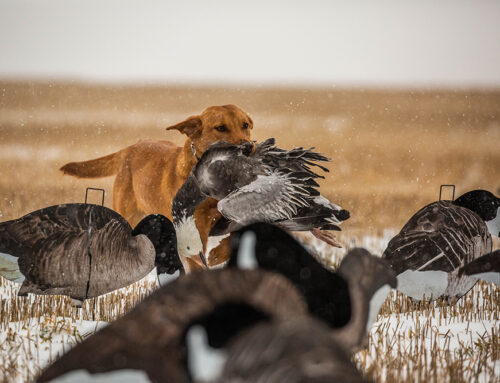
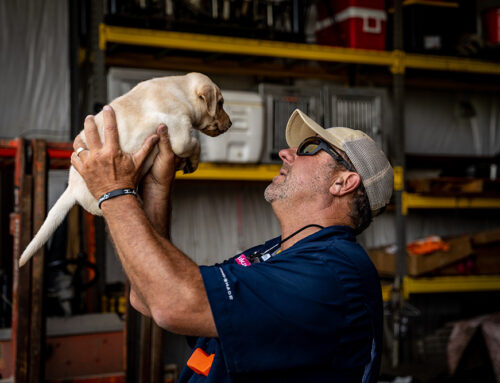
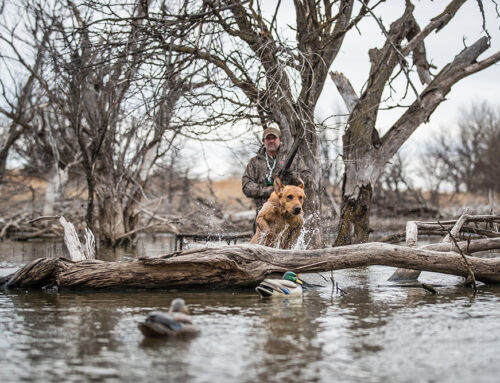
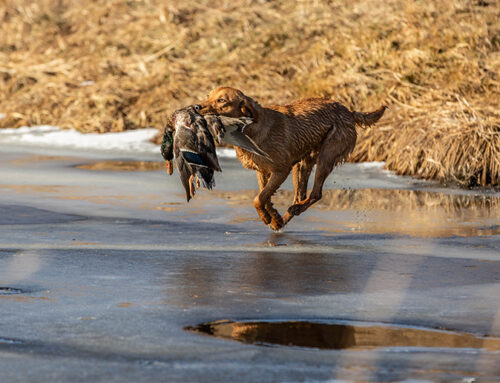
Great article. Thanks for the reminders
Kyle,
Great article.
just recently acquired a 5 months old black lab, Benelli Ray. . My wife’s first instructions to me was that Benelli would not allow her to be trained till she allowed her to be a puppy and to have all the things a puppy should have. Guess I will start training after hunting season is over and allow her plenty of time to enjoy the life of a very special and spoiled lab. In reading your articles on the needs and things to consider I have found your articles very helpful. I just hope we are not waiting too long, she has learned to sit and stay as well as fetching, so I feel that by the time it comes to more intense training she will have a jump on things. once again very good article.
Darrell Charles
.